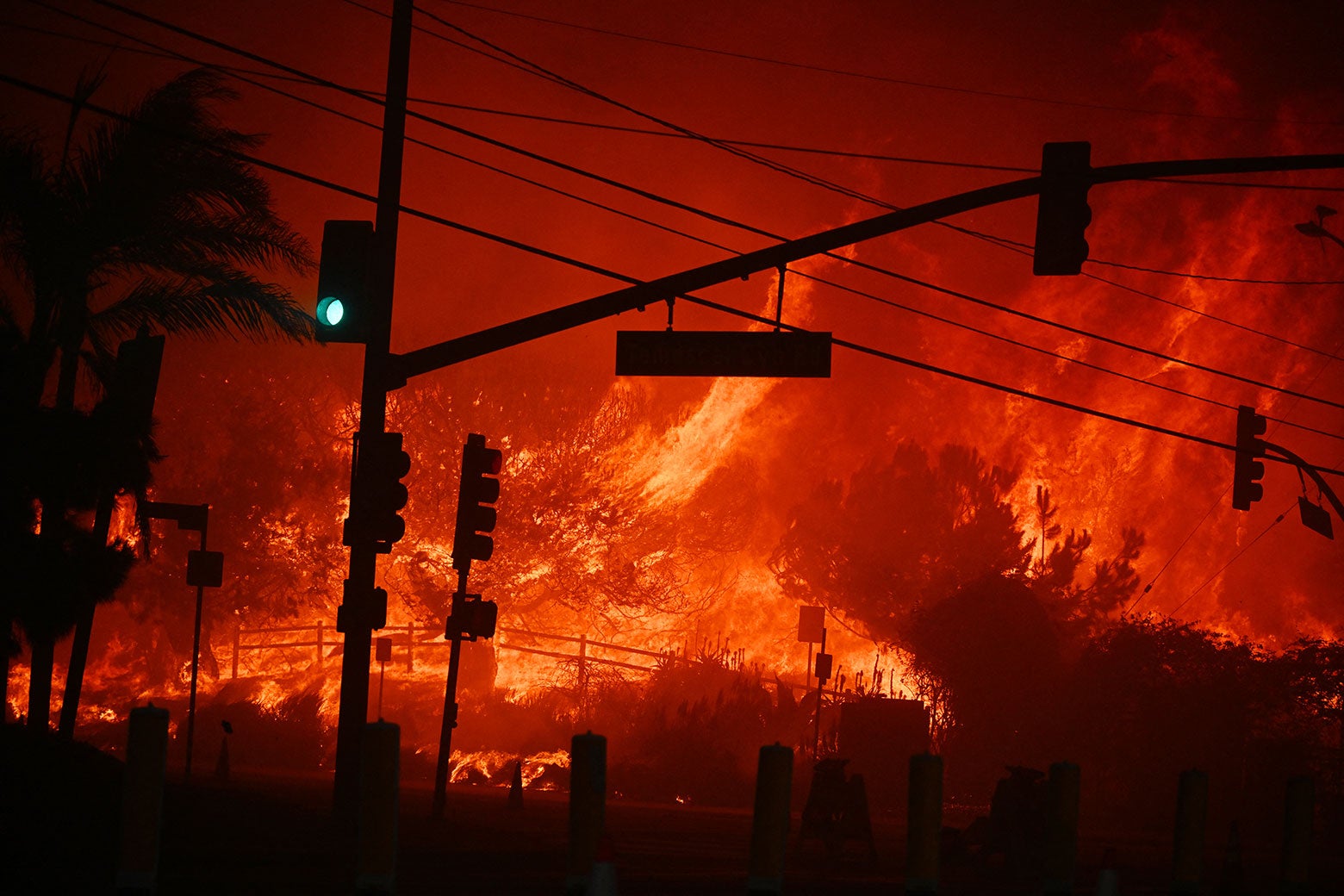Unpacking the Controversy: Should Private Firefighters Be Held Accountable in LA’s Wildfires?
As wildfires continue to threaten the homes and lives of residents in Los Angeles, an urgent debate has emerged surrounding the role of private firefighters. The intense conditions of recent years have prompted many affluent homeowners to hire private firefighting services, raising critical questions about accountability in crisis management. Should these private firefighters bear responsibility for their actions, or are they merely responding to a flawed system? This article explores the complexities of private firefighting, the implications for accountability, and the broader landscape of wildfire management in California.
The Rise of Private Firefighters in Los Angeles
California has long been susceptible to wildfires, with the Santa Ana winds and dry conditions creating a perfect storm for devastating blazes. As a result, many wealthy homeowners in high-risk areas have turned to private firefighting firms to protect their properties. These companies often provide services ranging from fire prevention assessments to on-site firefighting.
The growth of private firefighting services can be attributed to several factors:
- Increased Wildfire Frequency: With climate change exacerbating weather patterns, wildfires have become more frequent and severe.
- Public Firefighter Limitations: Public fire departments often face resource constraints, especially during peak fire seasons when multiple fires may occur simultaneously.
- Affluence of Homeowners: Wealthy individuals are more likely to invest in private services to safeguard their substantial investments in real estate.
This trend raises essential questions about the ethics and accountability of private firefighting operations. With the increasing reliance on these services, understanding their role and responsibilities during wildfires is crucial.
Challenges of Accountability in Crisis Situations
The question of whether private firefighters should be held accountable in the event of a wildfire is multifaceted. On one hand, private firefighting firms operate under contracts that outline their responsibilities and obligations. On the other hand, the unpredictable nature of wildfires complicates accountability.
Key challenges include:
- Ambiguity of Responsibilities: Contracts may lack clarity regarding the extent of services provided, leading to disputes over accountability.
- Resource Limitations: Private firefighting firms may have fewer resources than public fire departments, impacting their effectiveness.
- Emergency Situations: In the chaos of a wildfire, decisions must be made quickly, and private firefighters may prioritize protecting certain properties over others, raising ethical questions.
Moreover, the public perception of private firefighters can vary widely. While some see them as essential emergency responders, others view them as opportunists profiting from a crisis.
The Legal Landscape Surrounding Private Firefighters
Legally, the accountability of private firefighters is a gray area. Unlike public firefighters, who are generally protected by certain legal immunities, private entities do not enjoy the same protections. This raises the question: can they be held liable for failing to prevent damage during a wildfire?
Several factors influence potential liability:
- Contractual Obligations: If a private firefighting service fails to meet the terms of its contract, it could face legal action from homeowners.
- Negligence Claims: Homeowners may pursue negligence claims if they believe that the private firefighters acted recklessly or failed to take necessary precautions.
- Liability Insurance: The extent of a private firefighter’s liability may also depend on their insurance coverage and the specifics of the incident.
As the legal framework surrounding private firefighting continues to evolve, it’s essential for companies and homeowners to carefully review contracts and understand their rights and responsibilities in these situations.
The Ethical Implications of Private Firefighting
The ethical implications of hiring private firefighters cannot be overlooked. In an emergency situation, the prioritization of resources can lead to moral dilemmas. For instance, if a private firefighting firm is contracted to protect a luxury estate, how do they balance their duty to that property with the broader community’s needs?
Some argue that the emergence of private firefighting services exacerbates social inequalities. Wealthy homeowners can afford to protect their properties while those in less affluent areas may be left vulnerable. This disparity raises questions about the fairness of resource allocation during emergencies.
Community Perspectives on Private Firefighters
Residents of Los Angeles hold varied opinions on the role of private firefighters. Some appreciate the added layer of protection they provide, especially during the intense wildfire season. Others express concern that the proliferation of private firefighting services may detract from public resources and undermine community solidarity.
Key community perspectives include:
- Support for Private Firefighters: Proponents argue that private firefighters can supplement public efforts, especially during peak fire seasons when resources are stretched thin.
- Concerns Over Inequality: Critics highlight the disparity in access to firefighting resources, arguing that it creates a two-tiered system where only the wealthy can afford protection.
- Calls for Regulation: Some community members advocate for more oversight and regulation of private firefighting to ensure accountability and equitable access to resources.
The Path Forward: Finding Balance in Fire Management
The conversation surrounding private firefighters in Los Angeles underscores the need for a comprehensive approach to fire management. As wildfires become an increasingly prevalent threat, finding a balance between private and public firefighting efforts is essential.
Future solutions may include:
- Enhanced Collaboration: Public fire departments and private firefighting services should work together to create a more coordinated response to wildfires.
- Clearer Regulations: Establishing clearer regulations and standards for private firefighting firms can enhance accountability and ensure that they operate responsibly.
- Community Engagement: Engaging the community in discussions about fire management strategies can foster a sense of shared responsibility and cooperation.
In conclusion, the debate surrounding whether private firefighters should be held accountable in Los Angeles wildfires is far from straightforward. As the frequency and intensity of wildfires increase, addressing issues of accountability, ethics, and resource allocation will be crucial. By fostering collaboration between public and private entities and engaging the community in meaningful dialogue, we can work toward a more equitable and effective approach to wildfire management.
See more CNN Headline


